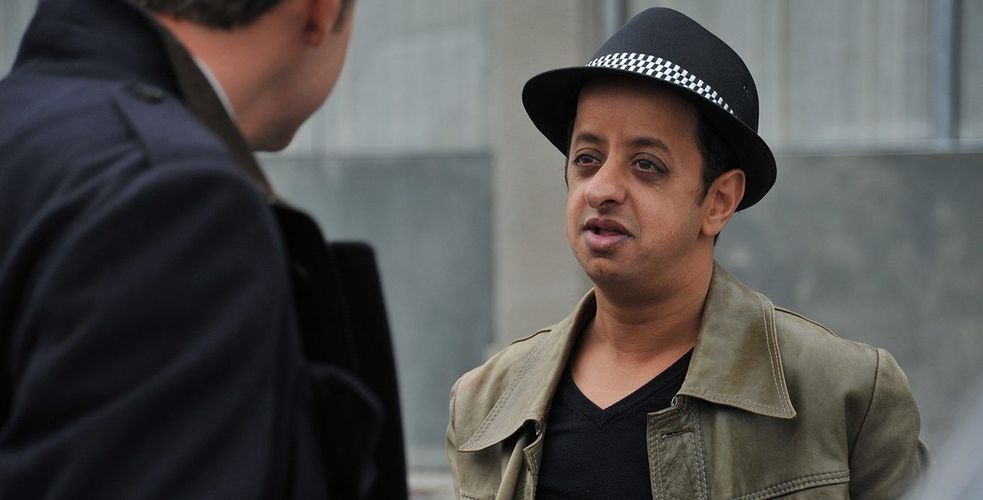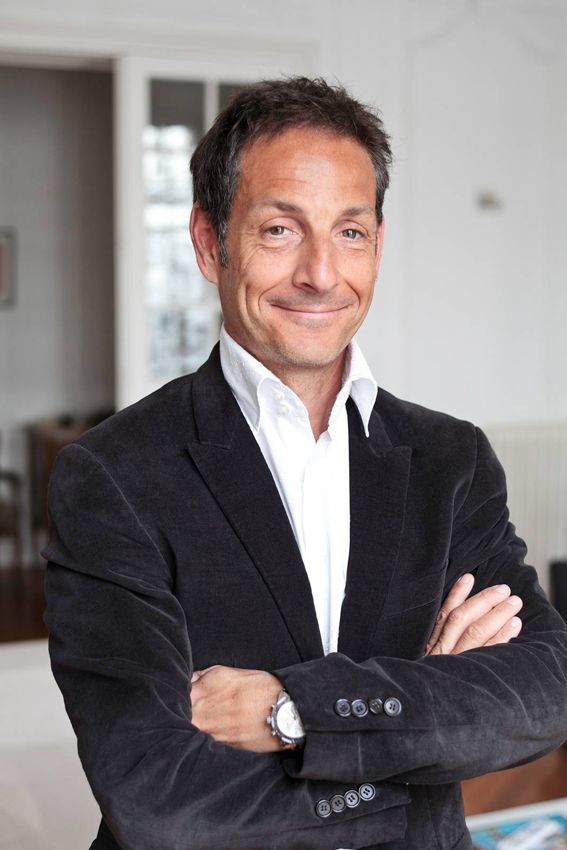“Who’s in it, who are you?” The story of a cursed movie

The first French comedy about call centres was co-written and produced by a neophyte in the world of cinema. But not in that of telephone platforms. The eventful story of a film and its producer: Manuel Jacquinet.

“Seeking photojournalist for freelance role”. When Déborah Chiarella responded to this announcement on the internet, she didn’t know what to expect … When he contacts her to set up an appointment, Manuel Jacquinet gave her more details: “He then told me that he actually wants to make a fiction series, it was pretty cryptic, but it intrigued me “… Finally, the improvised delegated producer of what was to become Operation 118 318, Sévices Clients told her he had – almost – put together a budget to make this feature film, his first, and asked if she – who has no significant experience in the field – wants to “make this film”. “And so, I said yes,” says Deborah in a burst of laughter. She’s like that, Deborah, enthusiastic, she works off instinct, and never turns back when she’s engaged. For Manuel Jacquinet, who shares these personality traits, she will be the woman for the job …
Spotlight on a shadow trade
Hard to know who of the two protagonists of this meeting will learn the most during this experience. Deborah Chiarella had previously only made documentaries, but graduated from a film school. Manuel Jacquinet, by his own admission, knew nothing about cinema. He does not even try to follow in his father’s footsteps, chief operator at the ORTF and then at the SFP “for television, not for cinema”. But he knows everything about the world where the film plunges its audience: that of call centres. The pitch of this “social comedy” he came up with “on a stand at the Salon Stratégie Clients (the former European Salon of Call Centres). The story was already that of a suburban youth who saves a provincial call centre disaster thanks to his resourcefulness, on behalf of a brilliant enarque who inherited the “bousin” to accommodate local political ambitions.
Why give (literally) a spotlight on the universe that is call centres? “I realized that it was a very cinematic, dramatic and humorous universe, which had never been shown in the cinema but deserved to be for three reasons. It’s behind closed doors, behind which a lot of fun things happen. And then, the reality that I knew was not at all the one known on the outside, by the general public. Above all, it allowed us to talk about our time, to try to make a real social comedy “.
Two trestles, a phone
The executive producer explains that he bought two books to learn “the trade”, which “did not seem very useful to him”. Above all, he begins to chain meetings. Until being received by Alain Terzian. The President of the Union of Film Producers, a member of the Board of Directors of the Cannes Film Festival, who gives him good advice: “A film producer is a guy with two trestles and a phone, and who passes his day at the end of the line. This, Manuel Jacquinet knows. And in the face of this nagging, scornful response “professionals in the profession”, as Godard said, “Who ‘s in it? And you who are you?” He perseveres.
Randomly one of the big representations of stand-up comedy on the Parisian boulevards, Booder takes one of the main roles of the film. The CEO of a large French service company joins forces with Manuel to bail out the budget. Some well-researched product placements end up closing the financing. He decided to transform (for real) a local EDF Tence, Haute-Loire, call centre that will work as a true provider of the sector once the film is completed. For her part, Déborah meets her team. Like Manuel, she says that “oddly,” she “never doubted that the film could be done.”
 “You will laugh. Actually, no, I do not think you’re going to laugh … “
“You will laugh. Actually, no, I do not think you’re going to laugh … “
The real problems will arise during the film’s distribution, the “specialist” selected systematically refused to pay a penny to accomplish their missions. Manuel Jacquinet recounts this dramatic episode: “A preview was planned in Annecy, in one of the largest multiplexes in France. France 3, the local press, actors, the director & friends were there … An hour before the screening, the director of the multiplex said: “You’re going to laugh… Actually, no, I think you will not laugh, we do not have the film, we’ve been in the cinema for two generations, we’ve never seen this. ” The distributor did not want to pay for the transport of the copy. The film was shown in less than a dozen cinemas, and a long trial between the producer and the distributor followed.
Déborah Chiarella will leave the executive production and its associates at the time to work with the director Quentin Dupieux in the United States, and to found a company … for delegated production. Manuel Jacquinet admits to not having kept contacts in the community, and that “if I had known that it would be so difficult, I would not have done it”.
So why talk about this adventure, four years after its release?
“For 3 reasons,” explains Manuel Jacquinet. “First, because this film is stillborn, it has never been able to benefit from a real theatrical release. Secondly, because a few weeks ago, the company that produced it went into liquidation, and the film was bought back. The new owner has the rights; he may make good use of them. Thirdly, I need to explain this whole story. For a third party, or my children to know what really happened. I do not have accounts to settle, but I did a lot of things that people do not understand, that I did not have time to explain, including to my relatives. I also realized that the creation of this film was for me a diversion in a difficult time on a personal level, for a lot of reasons … a strategy of risky survival, based on an intuition “.
By Stéphane Gance



